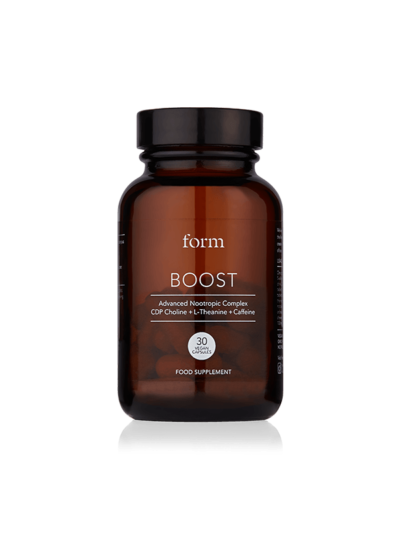What is a heavy metal?
Heavy metals are naturally occurring elements with relatively high density and atomic weight. In food safety, the four that matter most are lead, cadmium, arsenic and mercury.
These metals are present at trace levels throughout the environment — in soil, water and air — which means they also appear in almost all plant and animal foods. While very small amounts are a normal part of modern life, long-term or high-level exposure can be harmful because the body does not eliminate some heavy metals efficiently and detoxification capacity is limited.
Each of these heavy metals is found naturally in the earth’s soil and can also appear in manufactured products such as cosmetics, paint and electronics.
What’s this got to do with protein powder?
Since heavy metals are naturally occurring in the earth’s soil, anything grown in that soil — grains, legumes, seeds, fruits and vegetables — can absorb tiny amounts of these elements. Animals and fish, in turn, may accumulate them through the food chain (for example, concerns around higher mercury levels in some large predatory fish like tuna).
Plant-based protein powders are made from ingredients such as peas, rice and seeds that are grown in soil. In exactly the same way plants can absorb beneficial minerals (like magnesium, zinc and iron) from the soil, they can also absorb very small amounts of heavy metals.
This does not automatically make a product unsafe. What matters is the actual level in the finished product and how that compares to health-based regulatory limits.
So how do you protect against this?
Form’s ingredients are the highest quality we can source, GMO free and organic wherever possible. They are minimally processed to retain maximum nutrition while allowing us to control quality and purity.
To check and guard against heavy metals there are two processes in our quality assurance testing:
- All incoming raw materials are tested and supplied with a Certificate of Analysis confirming the levels of heavy metals are below accepted safe levels for human consumption.
- Finished product batches are randomly tested by independent, specialist UKAS accredited laboratories, including One Scientific and ALS Laboratories, to verify this.
We periodically test a selection of products and flavours. Because all flavours use the same protein base, this approach gives a robust picture of the whole range.
Are there really heavy metals in common foods?
Yes. As mentioned, heavy metals are naturally occurring in nature and therefore present at low levels in many everyday foods.
A good source is the US FDA Total Diet Study, which looked at the heavy metal content in common foods. It is important to note these are all naturally occurring levels, not added contamination. A selection of these results are presented below.
| Food | Arsenic (ppb) | Lead (ppb) | Cadmium (ppb) | Mercury (ppb) |
|---|---|---|---|---|
| Avocado (raw) | 5.6 | 0.44 | 9.4 | 0.13 |
| Cucumber (peeled, raw) | 13 | n/a | 1.3 | n/a |
| Potato (baked) | 4.3 | 2.3 | 43 | n/a |
| Mushrooms (raw) | 15 | n/a | 3.3 | 1.8 |
This context is helpful: trace levels of heavy metals are not unique to protein powder; they are a natural feature of many unprocessed foods.
What are the safe levels of heavy metals?
The answer depends on whether you are looking at:
- Product specifications (limits per kg of product), or
- Health-based daily intake guidance (limits per day for a person).
In the UK and EU, maximum levels for contaminants in food supplements are typically set per kilogram of product. For our category, we work to very conservative internal specifications based on this framework:
Arsenic – no level established
Lead – 3mg/kg
Cadmium – 1mg/kg
Mercury – 0.1mg/kg
With the testing of both incoming raw materials and finished products you can be assured usage of Form products falls well and safely below these levels.
| Heavy Metal | Safe Level | Form Test Level* | %age below safe level |
|---|---|---|---|
| Arsenic | No level established | 0.014mg/kg | – |
| Lead | 3mg/kg | 0.035mg/kg | 99% |
| Cadmium | 1mg/kg | 0.053mg/kg | 95% |
| Mercury | 0.1mg/kg | 0.009mg/kg | 91% |
* representative recent test results, since every batch and test can vary recent test results are available below.
In addition to mg/kg specifications, regulators also consider daily intake. For example, the US FDA uses health-based lead limits in micrograms per day (µg/day), with lower thresholds for children and women of childbearing age. The important point is that when you convert our tested mg/kg levels into a typical serving (e.g. 40g), the resulting exposure is far below any health-based threshold in the UK, EU or US.
Example: recent Form protein test results
As an illustration, here is an example from a 2025 test on Pureblend Protein (ALS Laboratories, UKAS 1282). The lab measured the finished product at:
- Lead: 0.006 mg/kg
- Cadmium: 0.004 mg/kg
- Arsenic: <0.03 mg/kg
- Mercury: <0.003 mg/kg
A suggested/standard serving of our proteins is 40g. When you scale those results to a 40g serving, you get approximately:
- Lead: around 0.24 µg per serving per serving (0.24 micrograms)
- Cadmium: around 0.16 µg per serving mg per serving (0.16 micrograms)
- Arsenic: <1.2 µg per serving (<1.2 micrograms)
- Mercury: <0.12 µg per serving (<0.12 micrograms)
To put that in perspective:
- These values are hundreds of times lower than EU/UK maximum levels when expressed on a daily intake basis.
- They are also well below US FDA health-based thresholds, even for more vulnerable populations.
Recent 2025 test results are available below:
| Product | Testing Laboratory | Laboratory Accreditation | Test Results |
|---|---|---|---|
| Performance Banoffee | ALS Laboratories (UK) Limited | UKAS Testing Laboratory No. 1282 | Download |
| Peakblend Vanilla | ALS Laboratories (UK) Limited | UKAS Testing Laboratory No. 1282 | Download |
| Superblend Chocolate Peanut | ALS Laboratories (UK) Limited | UKAS Testing Laboratory No. 1282 | Download |
| Pureblend | ALS Laboratories (UK) Limited | UKAS Testing Laboratory No. 1282 | Download |
| Performance Chocolate Peanut | One Scientific Ltd | UKAS Testing Laboratory No. 2048 | Download |
| Performance Vanilla | One Scientific Ltd | UKAS Testing Laboratory No. 2048 | Download |
| Performance Chocolate Hazelnut | One Scientific Ltd | UKAS Testing Laboratory No. 2048 | Download |
| Superblend Chocolate Salted | One Scientific Ltd | UKAS Testing Laboratory No. 2048 | Download |
| Pureblend | One Scientific Ltd | UKAS Testing Laboratory No. 2048 | Download |
| Peakblend Chocolate Peanut | One Scientific Ltd | UKAS Testing Laboratory No. 2048 | Download |
| Peakblend Banoffee | One Scientific Ltd | UKAS Testing Laboratory No. 2048 | Download |
How do these levels compare to UK, EU and US harmful levels?
Regulators typically set limits in two ways:
- Maximum levels in products (mg/kg) to control what can be sold.
- Tolerable daily intakes (µg/day) to ensure total exposure remains safe.
In Europe and the UK:
- Food supplements are regulated so that contaminant levels are kept very low per kilogram of product.
- Risk assessments by bodies such as EFSA then translate these into safe daily intakes across a lifetime.
In the US:
- The FDA sets health-based guidance levels for contaminants like lead, especially for vulnerable groups (children and women of childbearing age).
When we convert our finished product results (for example, 0.6 µg of lead in a 40g serving of Performance Protein) into daily exposure, they remain far below:
- EU/UK limits when expressed per day, and
- FDA’s health-based guidance levels, even for more vulnerable populations.
What is Proposition 65 and why are those levels lower?
California’s Proposition 65 (“Prop 65”) is often cited in media coverage of heavy metals, but it can be confusing.
Prop 65:
- Is a labelling law, not a food-safety standard.
- Requires businesses to display a warning if exposure to certain chemicals exceeds very low “safe harbor” levels.
- Sets those levels about 1,000 times lower than the amounts shown to cause harm in toxicology studies.
For lead, the Prop 65 “safe harbor” level is 0.5 micrograms per day. This is a legal threshold for when a warning label is required in California, not a point at which health effects are expected. By design, it includes a very large safety margin and it’s why in many California restaurants (and products) you’ll see a heavy metals warning.
This is why some reviews frame their analysis around 0.5 µg per serving: it is an extremely conservative label threshold, not a global or scientific definition of “unsafe”.
Why Form proteins are safe
Putting all of this together:
- Heavy metals are naturally present in soil and therefore in many foods, including plant-based protein ingredients.
- Form sources high-quality ingredients, often organic, and tests both incoming raw materials and finished products.
- Independent, UKAS-accredited laboratories confirm that our products sit well below UK, EU and US health-based limits.
- Example results (such as around 0.2 µg of lead and 0.16 µg of cadmium per 40g serving) are far below levels associated with harm.
- We publish recent heavy metal test reports so you can see the numbers for yourself.
In short, an understanding of the issue, the science and our testing and transparency mean you can use Form protein with confidence as part of a balanced diet.
Where can I learn more?
The European Food Safety Authority has good resources on contaminants in food as well as details on current regulations. You can also find our latest third-party heavy metal test reports in the links above for a detailed view of individual products.











